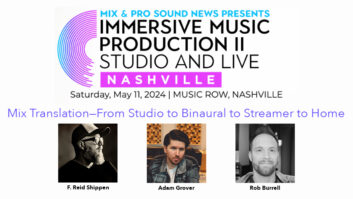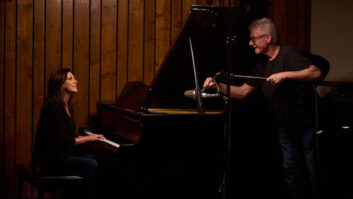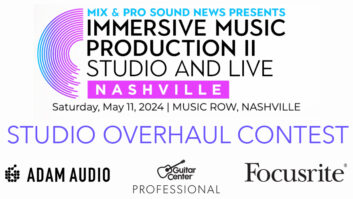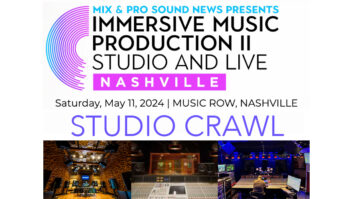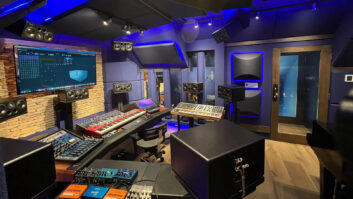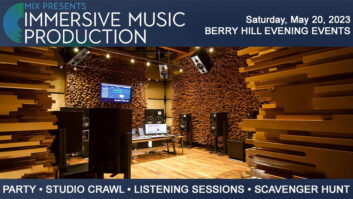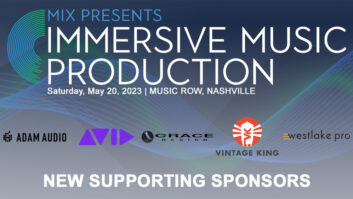When I came to Mix as an editor/writer 25 years ago this fall, I remember a feature crossing my desk a few months into my tenure that was titled something like “Nashville: More Than Just Country Music.” The gist, of course, was that although Music City was known far and wide as the undisputed capital of country music, the area’s studios were also churning out other styles. Over the years, we have run variations on that article, painting a similar picture of Nashville; clearly, that’s what studio owners and studio managers wanted to convey. And truly, the music in Nashville is more diverse than it appears on the surface. As more and more engineers, producers and musicians from other locales have flocked to Music City in search of a saner lifestyle and a more close-knit arts community, new influences, styles and ways of working have evolved. Today, the bustling Christian music scene thrives in the area, and there are all manner of folk, rock and alternative groups who call the city “home.”
But let’s not kid ourselves. This is a city where the country music establishment has been headquartered for more than half a century, and much of Nashville’s $2.6 billion music industry is still devoted to country music in its multiplicity of forms. Nashville is where the amalgam of European and American folk music, Tin Pan Alley pop tunes, gospel and indigenous blues came “down from the mountain” in the early days of the record industry; the Grand Ole Opry dates back to 1925, and the rise of both radio and phonograph records ensured that the nascent country music “business” (such as it was) would reach far beyond the borders of Davidson County. David Cobb is generally credited with coining the term “Music City U.S.A.” on WSM Radio in 1950; coincidentally, around the same time, Hank Williams was establishing the template for more “modern” country music and bluegrass was hitting its stride. The 1950s saw the rise of such immensely influential Nashville producers as Owen Bradley, Bill Sherrill and Chet Atkins, and the infusion of more “pop” elements in country music. The ’60s were another Golden Age for Nashville’s country musicians (and studios) — but it’s a testament to the variety and vitality of the genre that the staid conventions of the Nashville scene also inspired an Outlaw movement that ended up having a very positive evolutionary effect on country music. Since those days, that pattern has been repeated: Just when it seems that complacency has set in, something different comes along, whether it’s a return to old-time roots music or incorporating facets of modern rock and other styles.
Mix has always had a special place in its heart for Nashville. We’ve always had writers there, of course, and for many years the annual Summer NAMM show got many of us who were based in other cities to go to Nashville and revel in the verdant beauty of Music Row, soak in the cheery bonhomie of the downtown clubs and undertake that desperate search for any place with air conditioning! For many years, we’ve leant support to the annual Audio Masters benefit golf tournament at Harpeth Hills, and this month we’re hosting Mix Nashville 2008, a two-day event featuring panel discussions with studio luminaries, a songwriters’ stage, Demo Derby, hands-on recording application workshops and much more.
So we thought this would be a good time to devote a special issue to Nashville, digging a little deeper into its rich history and still-dynamic recording scene. Join us as we get some perspective on both glory days and challenging times for local studios; sit down with one of the city’s great characters, Cowboy Jack Clement; grab an inside view of Emmylou Harris’ reunion project with producer Brian Ahern; talk to some of Nashville’s finest engineers about recording bluegrass; delve into the live sound market; and plenty of other cool stuff.

